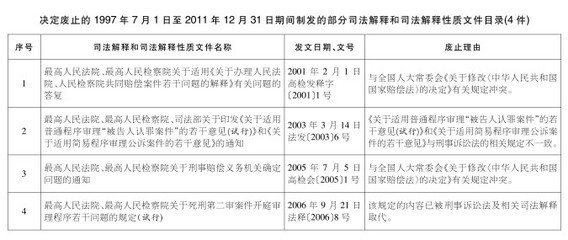
(后注:我最初把这个视频放置在了土豆网上,最近发现居然被删除了!难道是因为杨澜的演讲“不够和谐”?算了,大家还是上TED网站上去看吧,已把TED视频贴上来。)
杨澜2011年7月在著名的TED讲坛的英文演讲-
The generation that's remakingChina (正在重造中国的一代人)
杨澜被称为是“中国的奥普拉”。
应该是大陆中国人(身份)第一次上世界著名的TED讲坛。杨澜的英语发音基本上是英式发音,很标准而且很动听,有几个词的发音有美式英语的味道,可能是因为她曾在美国留学的原因吧。演讲人的风度、眼神等也很有“国际化”风采。大陆中国人在国际上的演讲能做到这样的表现确是非常优秀了,中国人都应该在国际上大大小小的场合多一点自己的声音,用规范现代的英语准确到位地表达自己,会和老外开口聊聊天算什么啊,早就应该提升标准啦。
当然,杨澜如果能多研究一些TED上英美母语人士的演讲模式,她的这个演讲应该会对英美听众产生更多的积极影响。一,中间和后面多一些幽默和诙谐的言语效果会更好,在不到20分钟的演讲中,幽默的气氛比罗列统计数据疑似“国家发言人”的格调对英美人士更有效,幽默演讲模式是TED演讲的常用模式,许多在TED上演讲的美籍华人也基本上依循同样的“幽默文化”;二、话题内容不要铺得太开,不到20分钟的TED分配指标时间内,要抓紧时间进入主题,最好是把一个窄的、小的、专一些的话题讲明白就成功了,杨澜演讲的中国例子举泛了反而让西方人士觉得她在代表中国ZF说话,所以,在TED网页的评论上有不少怀疑的评论,大家可以去读读,中英文的评论都有。
英文原稿在博客视频下面。
The Generation that's remakingChina
The night before I was heading forScotland, I was invited to host thefinal of "China's Got Talent" show inShanghai with the 80,000 live audience in thestadium. Guess who was the performingguest? Susan Boyle. And I told her, "I'm going to Scotland the nextday." She sang beautifully,and she even managed to say a few words inChinese. [Chinese] So it's not like "hello" or "thankyou," that ordinary stuff. It means "green onion forfree." Why did she say that?Because it was a line from our Chinese parallel Susan Boyle-- a 50-some year-old woman,a vegetable vendor inShanghai, who loves singing Westernopera, but she didn't understandany English or French orItalian, so she managed to fill in thelyrics with vegetable names inChinese. (Laughter) And the last sentence of NessunDorma that she was singing in thestadium was "green onion for free."So [as] Susan Boyle was sayingthat, 80,000 live audience sangtogether. That was hilarious.
So I guess both Susan Boyleand this vegetable vendor inShanghai belonged to otherness.They were the least expected to besuccessful in the business calledentertainment, yet their courage and talent brought themthrough. And a show and a platformgave them the stage to realize their dreams.Well, being different is not thatdifficult. We are all different from different perspectives.But I think being different isgood, because you present a different point ofview. You may have the chance to make adifference.
My generation has been veryfortunate to witness and participatein the historic transformation ofChina that has made so many changesin the past 20, 30 years.I remember that in the year of1990, when I was graduating fromcollege, I was applying for a job in the salesdepartment of the first five-star hotel inBeijing, Great Wall Sheraton -- it's stillthere. So after being interrogatedby this Japanese manager for a half anhour, he finally said, "So, Miss Yang, do you have any questions to askme?" I summoned my courage and poise andsaid, "Yes, but could you let meknow, what actually do you sell?"I didn't have a clue what a sales department wasabout in a five-star hotel.That was the first day I set my foot in a five-star hotel.
Around the same time,I was going through an audition -- the first ever open auditionby national television in China-- with another thousand collegegirls. The producer told us they were looking for some sweet,innocent and beautiful fresh face.So when it was my turn, I stood up andsaid, "Why [do] women's personalities ontelevision always have to be beautiful, sweet,innocent and, you know, supportive?Why can't they have their ownideas and their own voice?"I thought I kind of offended them. But actually, they were impressed by mywords. And so I was in the second round ofcompetition, and then the third and thefourth. After seven rounds ofcompetition, I was the last one to surviveit. So I was on a national television prime-timeshow. And believe it or not,that was the first show on Chinesetelevision that allowed its hoststo speak out of their ownminds without reading an approvedscript. (Applause) And my weekly audience at thattime was between 200 to 300 millionpeople.
Well after a few years,I decided to go to the U.S. and ColumbiaUniversity to pursue my postgraduatestudies, and then started my own mediacompany, which was unthought ofduring the years that I started mycareer. So we do a lot of things.I've interviewed more than a thousand people inthe past. And sometimes I have young people approachingme say, "Lan, you changed mylife," and I feel proud of that.But then we are also sofortunate to witness the transformation of the wholecountry. I was in Beijing's bidding for the OlympicGames. I was representing the ShanghaiExpo. I saw China embracing theworld and vice versa. But then sometimes I'mthinking, what are today's young generation upto? How are they different,and what are the differences they are going tomake to shape the future of China,or at large, the world?
So today I want to talk about youngpeople through the platform of socialmedia. First of all,———— who are they? [What] do they looklike? Well this is a girl called Guo Meimei-- 20 years old, beautiful.She showed off her expensivebags, clothes and car on her microblog, which is the Chinese version ofTwitter. And she claimed to be the general manager of RedCross at the Chamber of Commerce.She didn't realize that she stepped on a sensitivenerve and aroused nationalquestioning, almost a turmoil, against the credibility of RedCross. The controversy was so heatedthat the Red Cross had to open a pressconference to clarify it, and the investigation is goingon.
So far, as of today, we know that she herself made up that title-- probably because she feels proud to be associatedwith charity. All those expensive itemswere given to her as giftsby her boyfriend, who used to be a board memberin a subdivision of Red Cross at Chamber ofCommerce. It's very complicated toexplain. But anyway, the public still doesn't buyit. It is still boiling. It shows us a generalmistrust of government or government-backedinstitutions, which lacked transparency in thepast. And also it showed usthe power and the impact of social mediaas microblog.
Microblog boomed in the year of2010, with visitors doubledand time spent on it tripled. Sina.com, a major newsportal, alone has more than 140 millionmicrobloggers. On Tencent, 200 million.The most popular blogger --it's not me -- it's a movie star, and she has more than 9.5 million followers, orfans. About 80 percent of those microbloggers are youngpeople, under 30 years old. And because, as you know,the traditional media is still heavily controlledby the government, social media offers anopening to let the steam out a littlebit. But because you don't have many otheropenings, the heat coming out of thisopening is sometimes very strong,active and even violent.
So through microblogging,we are able to understand Chinese youth evenbetter. So how are they different?First of all, most of them wereborn in the 80s and 90s, under the one-child policy.And because of selectedabortion by families who favored boys togirls, now we have ended up with 30 million more young men thanwomen. That could pose a potential danger to thesociety, but who knows; we're in a globalized world,so they can look for girlfriends from othercountries. Most of them have fairly goodeducation. The illiteracy rate in China among thisgeneration is under one percent.In cities, 80 percent of kids go to college.But they are facing an agingChina with a population above 65 yearsold coming up with seven-point-some percent thisyear, and about to be 15 percentby the year of 2030. And you know we have thetradition that younger generations support the eldersfinancially, and taking care of them when they'resick. So it means young coupleswill have to support fourparents who have a life expectancy of 73 yearsold.
So making a living is not thateasy for young people. College graduates are not in shortsupply. In urban areas, college graduates find the startingsalary is about 400 U.S. dollars amonth, while the average rentis above $500. So what do they do? They have to share space-- squeezed in very limitedspace to save money -- and they call themselves "tribe ofants." And for those who are ready to getmarried and buy their apartment,they figured out they have towork for 30 to 40 years to afford their firstapartment. That ratio in Americawould only cost a couple five years to earn,but in China it's 30 to 40years with the skyrocketing real estateprice.
Among the 200 million migrantworkers, 60 percent of them are youngpeople. They find themselves sort ofsandwiched between the urban areas and the ruralareas. Most of them don't want to go back to thecountryside, but they don't have the sense ofbelonging. They work for longer hourswith less income, less socialwelfare. And they're more vulnerableto job losses, subject to inflation,tightening loans from banks, appreciation of the renminbi,or decline of demand from Europe or Americafor the products theyproduce. Last year, though, an appalling incidentin a southern OEM manufacturing compound inChina: 13 young workers in their late teens and early20s committed suicide, just one by one like causing a contagiousdisease. But they died because of all different personalreasons. But this whole incidentaroused a huge outcry fromsociety about the isolation, both physical and mental,of these migrant workers.
For those who do return back to thecountryside, they find themselves very welcomelocally, because with the knowledge, skills andnetworks they have learned in thecities, with the assistance of theInternet, they're able to create morejobs, upgrade local agriculture and create newbusiness in the less developed market.So for the past few years, the coastalareas, they found themselves in a shortage oflabor.
These diagrams show a more general socialbackground. The first one is the Engelscoefficient, which explains that the cost of dailynecessities has dropped its percentageall through the past decade,in terms of family income,to about 37-some percent.But then in the last twoyears, it goes up again to 39percent, indicating a rising livingcost. The Gini coefficient has already passed the dangerous line of0.4. Now it's 0.5 -- even worse than that in America-- showing us the incomeinequality. And so you see this wholesociety getting frustrated about losing some of itsmobility. And also, the bitterness and evenresentment towards the rich and thepowerful is quite widespread. So any accusations ofcorruption or backdoor dealings between authorities orbusiness would arouse a social outcryor even unrest.
So through some of the hottest topics onmicroblogging, we can see what young people care mostabout. Social justice and governmentaccountability runs the first in what theydemand. For the past decade or so,a massive urbanization anddevelopment have let us witness a lot ofreports on the forced demolitionof private property. And it has aroused huge anger andfrustration among our young generation.Sometimes people get killed,and sometimes people set themselves on fire toprotest. So when these incidents arereported more and more frequently on theInternet, people cry for the government to take actions tostop this.
So the good news is that earlier thisyear, the state council passed a newregulation on house requisition anddemolition and passed the right to order forced demolition from localgovernments to the court. Similarly, many other issues concerning publicsafety is a hot topic on theInternet. We heard about polluted air,polluted water, poisonedfood. And guess what, we have fakedbeef. They have sorts ofingredients that you brush on a piece of chicken orfish, and it turns it to look likebeef. And then lately, people are very concerned about cookingoil, because thousands of people have beenfound [refining] cooking oilfrom restaurant slop.So all these things have aroused a huge outcry from theInternet. And fortunately, we have seen the governmentresponding more timely and also morefrequently to the public concerns.
While young people seem to be verysure about their participationin public policy-making,but sometimes they're a little bitlost in terms of what they want for their personallife. China is soon to pass theU.S. as the number one marketfor luxury brands -- that's not including the Chineseexpenditures in Europe and elsewhere.But you know what, half of thoseconsumers are earning a salary below 2,000 U.S.dollars. They're not rich at all.They're taking those bags andclothes as a sense of identity and socialstatus. And this is a girl explicitlysaying on a TV dating show that she would rather cry in aBMW than smile on a bicycle.But of course, we do have youngpeople who would still prefer tosmile, whether in a BMW or [on] abicycle.
So in the next picture, you see a very popularphenomenon called "naked" wedding, or "naked"marriage. It does not mean they will wear nothing in thewedding, but it shows that these young couples are readyto get married without a house, without a car, without a diamondring and without a weddingbanquet, to show their commitment to truelove. And also, people are doing good through socialmedia. And the first picture showedus that a truck caging 500 homeless and kidnappeddogs for food processing was spotted and stopped on thehighway with the whole countrywatching through microblogging.People were donating money, dogfood and offering volunteer work to stop thattruck. And after hours ofnegotiation, 500 dogs were rescued.And here also people are helping to find missingchildren. A father posted his son's picture onto theInternet. After thousands of [unclear],the child was found, and we witnessed the reunion of thefamily through microblogging.
So happiness is the most popularword we have heard through the past twoyears. Happiness is not only relatedto personal experiences and personalvalues, but also, it's about theenvironment. People are thinking about the followingquestions: Are we going to sacrifice our environmentfurther to produce higher GDP?How are we going to perform our social andpolitical reform to keep pace with economicgrowth, to keep sustainability andstability? And also, how capable is thesystem of self-correctness to keep more people contentwith all sorts of friction going on at the sametime? I guess these are the questions people are goingto answer. And our younger generationare going to transform thiscountry while at the same time being transformedthemselves.
Thank you very much.
(Applause)
 爱华网
爱华网


